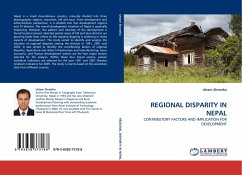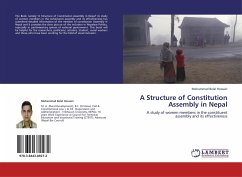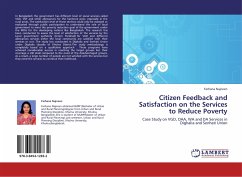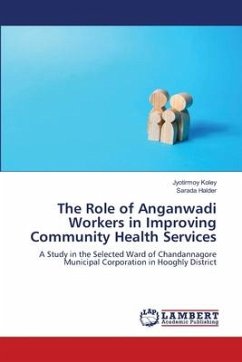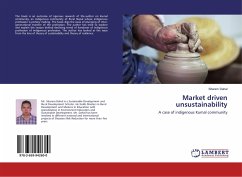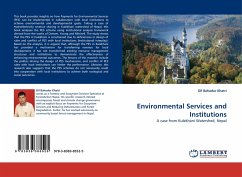
Environmental Services and Institutions
A case from Kulekhani Watershed, Nepal
Versandkostenfrei!
Versandfertig in 6-10 Tagen
32,99 €
inkl. MwSt.

PAYBACK Punkte
16 °P sammeln!
This book provides insights on how Payments for Environmental Services (PES) can be implemented in collaboration with local institutions to achieve environmental and developmental goals. Taking a case of hydroelectricity revenue sharing in Kulekhani watershed of Nepal, this book analyses the PES scheme using institutional analysis framework derived from the works of Ostrom, Young and Mitchell. The study shows that the PES in Kulekhani is constrained due to deficiencies in design of rules and conflict of PES with local institutions (institutional interplay). Based on the analysis, it is argued ...
This book provides insights on how Payments for Environmental Services (PES) can be implemented in collaboration with local institutions to achieve environmental and developmental goals. Taking a case of hydroelectricity revenue sharing in Kulekhani watershed of Nepal, this book analyses the PES scheme using institutional analysis framework derived from the works of Ostrom, Young and Mitchell. The study shows that the PES in Kulekhani is constrained due to deficiencies in design of rules and conflict of PES with local institutions (institutional interplay). Based on the analysis, it is argued that, although the PES in Kulekhani has provided a mechanism for transferring revenue for local development, it has not transformed existing resource management structures and institutions to demonstrate the effectiveness of enhancing environmental outcomes. The lessons of this research include the politics driving the design of PES mechanisms, and conflict of PES rules with local institutions can hinder the performance. Likewise, this research also suggests that the PES schemes do not necessarily result into cooperation with local institutions to achieve both ecological and social outcomes.






